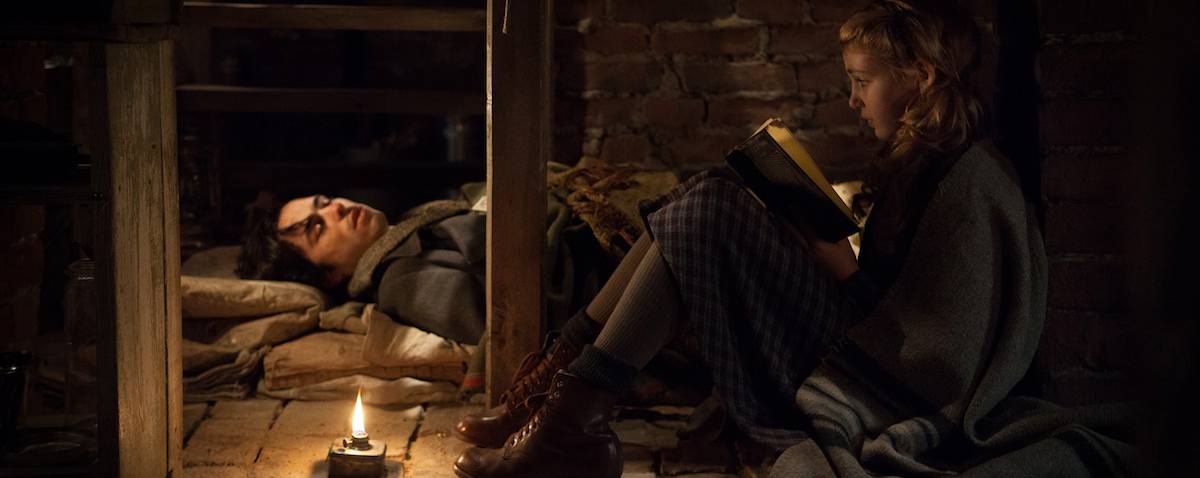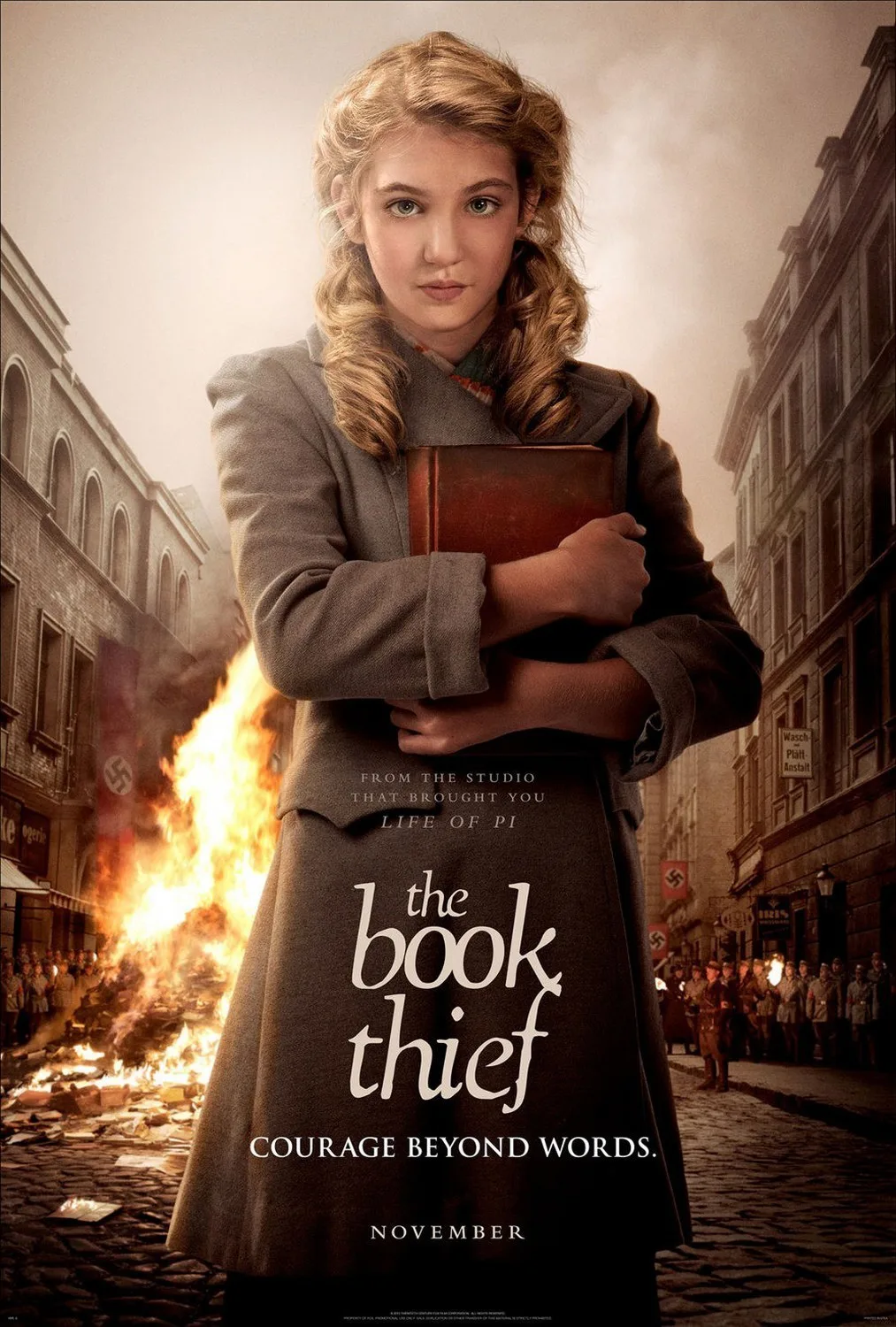Has the use of Nazis in movies reached the point of being pornographic? While some observers might say that line was crossed long ago, others may find that conclusive proof arrives in Brian Percival’s “The Book Thief,” based on an international bestseller that The New York Times jibed as “Harry Potter and the Holocaust.” Here, of course, the kind of pornography that’s meant isn’t erotic (there are only coy glimmers of that) but sentimental – historic horror enlisted in the cause of facile fantasy.
If you go to a bookstore looking for Markus Zusak’s novel, the movie’s source, you’re likely be directed to the Young Adult or Teen Fiction sections, which explains a lot about the movie’s appeal, and lack thereof. Like a kid-friendly mulch of elements cribbed from “The Diary of Anne Frank” and “Slaughterhouse-Five,” the film conceivably could play well to an audience of 12-year-olds and their grandparents. Other adults, though, are more apt to find the proceedings an occasion for fits of squirming and eye-rolling.
This is the movie, after all, that’s narrated by Death, a device that you can imagine possibly working in a Hollywood film of the ’30s or ’40s, but hardly since. What’s the Grim Reaper doing here, besides nudging along the exposition and dropping ironic bon mots? Obviously, he serves a purpose much akin to that of the movie’s impeccably costumed but barely differentiated Nazis: to attempt giving some thematic ballast to a tale so wispy and ungrounded that otherwise it might float away.
The center of that fiction is Liesel (Sophie Nelisse), one of those spunky young heroines that keep the Young Adult industry afloat. When Death first introduces her, in 1938, she is on the run with a fugitive mother and a little brother who dies in the first scene. Soon after, Mom vanishes over the horizon and Liesel is taken in by a good-hearted provincial couple, kindly Hans (Geoffrey Rush) and crusty-but-lovable Rosa (Emily Watson). Was the girl’s mom, as is hinted, a communist? Why would this couple, who barely have enough to eat, take in an unknown child to care for? Such are the questions the movie ignores as it gallops along to history’s accelerating drumbeat.
Here’s another: How is it that Liesel, mocked by her new schoolmates for being illiterate, quickly morphs not just into a reader but one so adept and voracious that she’s soon swiping books from the local burgermeister’s library? (This valorization of reading is a transparent come-on in many books aimed at young readers.) Whatever its source, her newfound passion is one she shares with Max (Ben Schnetzer), a young Jewish guy the kindly couple hide in their basement. And of course, the Nazis hate books, as they demonstrate by burning a heap in the town square.
Our heroine’s bookishness, meanwhile, is mainly a source of bemusement to Rudy (Nico Liersh), the flaxen-haired neighbor boy who befriends and dotes on her. In a different, more reality-based movie, their relationship would be a coming-of-age romance. But though the characters here age from 13 to 17 during the story, at the end they look exactly like the barely pubescent kids they were when it started, and the troubling excitements of eros never arise.
That ostensibly strange fact is perhaps explained less by the obvious constraints of filming the same actors in a short production schedule than by the have-your-cake-and-eat-it-too logic that guides so many fantasy narratives. In this realm, people supposedly grow up, yet at the same time remain magically innocent and unchanged. Likewise, history: the mean old Nazis hound Max and march sad-looking Jews down the street, but we never see what happens to those Jews—they remain vaguely wistful images divorced from the cruel reality of their corporeal fates.
While director Percival (“Downton Abbey”) elicits estimable performances from his cast, especially Nelisse, Rush and Watson, the visible world he embeds them in looks like a set from an old studio movie or a ’50s TV sitcom. Heaven Street, the provincial thoroughfare is called, and its airbrushed quaintness is as dreamily reassuring as John Williams’ score, despite (or because of?) the heavily fetishized Nazi flags that seem to festoon every available inch of screen space.
In the end, there’s a distinct air of solipsism to this tale. To be sure, bombs fall, death ensues, and Heaven Street briefly appears rather hellish. But Liesel undergoes no discernible transformation, and that seems to be the point: History may be awful, but a young heroine’s spunkiness can overcome anything. Thus does actual tragedy get reduced to the role of kitschy backdrop, a transposition of true obscenity.




















